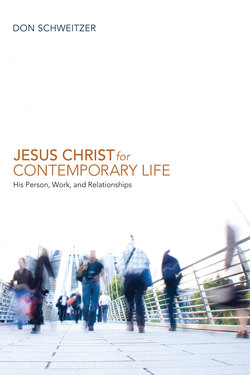Читать книгу Jesus Christ for Contemporary Life - Don Schweitzer - Страница 4
На сайте Литреса книга снята с продажи.
Preface
ОглавлениеChristians today live in a cosmopolitan world. Previous bound-
aries of nation, ethnicity, culture, class, gender, and race have become porous. Yet many injustices of the modern world remain, exacerbated now by the rise of an empire that enforces them ruthlessly and without compunction. Joined to this are the environmental crisis and a sense of the limitations and fallibility of all moral codes and religious traditions, Christianity included. Christian discipleship in this time requires an identity bound to an emancipatory vision yet open to others and capable of self-critique. Such an identity requires strong moral sources to sustain it.
This book presents an understanding of Jesus Christ in a Trinitarian perspective that tries to provide these moral sources and identity. It argues that Jesus Christ communicates the beauty and goodness of God in a way that can empower people to further express this in their own lives, even in confrontation with the forces of empire and their own failings, and is open to celebrating other traditions and receiving from them. It draws upon the quest for the historical Jesus and from New Testament, patristic, and contemporary Christologies to argue this. It presents this understanding by examining first the person of Jesus Christ, then his saving significances, and finally his relationships, to the church and to others.
Many people and institutions played a role in the writing of this book. Tatha Wiley encouraged me to begin. Various editors at Wipf and Stock have patiently waited for it to be completed. Mallory Wiebe, library technician at St. Andrew’s College, helped me obtain books and articles from other libraries in the Saskatoon Theological Union. Melanie Schwanbeck helped me when I had computer troubles. The interlibrary loans staff at the University of Saskatchewan also helped me access materials. Teaching sessions at Bishop’s College in Kolkata, Serampore College in Serampore, United Theological College in Bangalore, and Kerela United Theological Seminary in Trivanandrum, India, and visiting HanShin Graduate School of Theology in Seoul, Korea, all helped broaden my thought. Rev. Deborah Shanks and Rev. Gord Waldie, former students, and Dr. Harold Wells, a long-time colleague, read drafts of the chapters and made valuable suggestions. Many of the students who took the course “Jesus Christ and the Quest for Wholeness” in the years I taught it have also helped improve the ideas presented here. I thank all of the above and any others I have forgotten to name for their help with this book.
